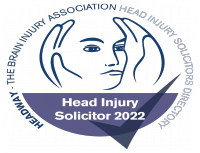Gallbladder And Bile Duct Claims
- Medical Negligence
- No Win, No Fee
- Success Stories
- Was My Medical Treatment Negligent?
- Misdiagnosis and Delayed Diagnosis
- Cancer Misdiagnosis
- Birth Injuries
- Birth Injury Claim - Mother and Baby
- Medical Negligence For A Child
- Ectopic Pregnancies
- Brain Injuries
- Subarachnoid Haemorrhage Compensation Claim Solicitors
- Surgery Compensation
- Appendicitis Misdiagnosis
- Cauda Equina Syndrome
- Kidney Failure Misdiagnosis
- Bladder Injury
- Gallbladder and Bile Duct Claims
- Sepsis Compensation Claims
- GP Negligence Claims
- Cerebral Palsy Claims
- Medical Negligence Calculator
- Medical Negligence FAQs
No Win, No Fee Compensation Claims
Bile duct injuries after gallbladder surgery can lead to potentially fatal infections such as sepsis or peritonitis as caustic bile leaks into the abdomen.
Post-surgery bile leaks can also reduce life expectancy, cause serious liver damage and result in chronic health problems that impact severely on your quality of life.
Did your gallbladder or bile duct operation go wrong? Claim compensation – No Win, No Fee – to help fund your treatment and long-term care.
No Win, No Fee Compensation Claims
Bile duct injuries after gallbladder surgery can lead to potentially fatal infections such as sepsis or peritonitis as caustic bile leaks into the abdomen.
Post-surgery bile leaks can also reduce life expectancy, cause serious liver damage and result in chronic health problems that impact severely on your quality of life.
Did your gallbladder or bile duct operation go wrong? Claim compensation – No Win, No Fee – to help fund your treatment and long-term care.
Gallbladder Treatment Complications
Small gallstones (that do not contain calcium) can be dissolved by taking ursodeoxycholic acid tablets. But these are rarely effective: they must be taken for up to two years – and gallstones can come back after you stop taking the pills.
Removal of the gallbladder is the most common treatment for gallstones. This can involve various types of surgery:
- keyhole surgery (laparoscopic cholecystectomy) – multiple incisions
- keyhole surgery – single incision
- open surgery
- endoscopic retrograde cholangio-pancreatography (ERCP).
Multiple Incision Keyhole Surgery
In this form of keyhole surgery (60-90 minutes under general anaesthetic), the surgeon makes three or four small cuts to the abdomen then pumps in carbon dioxide gas. This gas inflates the abdomen, creating more space and making it easier to operate. The surgeon inserts a thin laparoscope (a thin telecope with a light and small video camera) and uses surgical instruments to remove the gallbladder.
If there are gallstones in your bile duct you should have an X-ray or an ultrasound scan. Did the doctors fail to do this?
Single Incision Keyhole Surgery
This is a newer form of laparoscopic cholecystectomy which involves only one cut. It is claimed to involve less pain, a shorter recovery time and the possibility of fewer wound complications.
But the operation is more difficult and so requires a more skilled and experienced surgeon. Were you injured because of a surgical error?
Did your surgeon lack the necessary expertise to perform this complex operation correctly?
Open Cholecystectomy
Laparoscopic gallbladder surgery is not suitable for all patients. You may need traditional open surgery if you:
- are very overweight
- are in the last three months of pregnancy
- have an unusual gallbladder or bile duct structure that could make keyhole surgery dangerous.
There is the risk of a bile leak after an open cholecystectomy (just like other forms of gallbladder surgery) and – as with any type of surgery – there is the risk of infection and other complications.
Post-cholecystectomy complications can include bile leaks, excessive bleeding, blood clots and accidental surgical injuries to the liver, intestines or major blood vessels.
There are also all the normal risks associated with general anaesthesia: heart attack/failure, stroke, pneumonia, adverse reactions to the drugs, muscle damage and death. You may also wake up during the operation and experience pain but this is very rare.
Endoscopic Retrograde Cholangio-pancreatography (ERCP)
ERCP is used to remove the gallstones – but not the gallbladder. Clinicians put an endoscope (a long flexible tube with a camera) down your throat and widen the opening of the bile duct with a small cut or an electrically heated wire.
They remove the gallstones or let them travel into your intestine and out of your body. Sometimes the doctors will insert a stent (a small tube) to help the stones pass.
Bile duct surgery complications can include:
- pancreatitis – inflammation of the pancreas (a large gland which releases digestive enzymes into your small intestine)
- perforations or bleeding in the intestines
- infection
- the stent moving out of place.
Bile Leak Symptoms
Bile leaks occur in around one per cent of gallbladder operations. They can be extremely painful as caustic, alkaline bile leaks into areas of the abdomen.
Symptoms include abdominal pain and swelling, nausea and fever. You may need an operation to drain the bile and wash out the affected areas.
Doctors may mistake your bile leak symptoms for another condition: they may not come to the correct diagnosis immediately. This can lead to weeks, months and even years of suffering in some extreme cases.
Blocked Bile Duct Symptoms
Are you suffering because your doctors failed to diagnose your blocked bile duct in time?
Typical symptoms include:
- dark urine, light coloured stools
- jaundice – yellow skin or eyes
- pain in your right side
- nausea, vomiting
- weight loss
- itchy skin.
Gallstones are not the only cause of a blocked bile duct. Other causes can include inflammation, a biliary stricture (abnormal narrowing), cysts, enlarged lymph nodes, pancreatitis, cancer, hepatitis, cirrhosis or other damage to the liver.
Gallbladder Infection Symptoms and Treatment
Gallbladder infections are characterised by severe pain in the upper right or centre of the abdomen. This pain can spread to your right shoulder or back. Your abdomen will feel tender. You may also experience nausea, vomiting and fever.
Treatment for gallbladder infections includes:
- fasting – an initial measure designed to reduce the stress on the gallbladder
- intravenous fluids – to prevent dehydration
- antibiotics and painkillers
- surgery – an emergency endoscopic retrograde cholangio-pancreatography (ERCP) to remove any stones blocking the bile ducts.
Were you offered an ERCP in time? Was there a delay? Did your doctors fail to carry out an ultrasound? Any delays could allow more caustic bile to leak out into your abdomen – potentially causing more pain and injury.
How Much Can I Claim For Gallbladder Complications Or Bile Duct Problems?
Damages for bile duct injuries typically range from £10,000 to six figure sums, depending on the severity and long-term impact of the injuries.
In one recent case, a health trust offered our client £8,000 compensation but we were able to secure a settlement of £20,000 for them.
That case involved alleged delayed diagnosis and mismanagement of a bile duct injury (allegedly caused by the clinicians during keyhole surgery to remove the patient’s gallbladder).
The victim alleged that the trust:
- caused a bile duct injury by using substandard surgical techniques
- discharged them from hospital even though they complained of abdominal pain and had vital signs that should have given cause for concern
- delayed the diagnosis and treatment of the bile duct injury and resultant bile leak by four weeks
- failed to carry out an ultrasound – allowing the bile leak to increase to more than two litres.
These failures resulted in the patient enduring three to four weeks of unnecessary pain after gallbladder surgery.
The trust admitted liability for the delays in diagnosis and treatment (subject to proof of causation) but denied being liable for the surgical error.
Medical Negligence Due To Lack Of Informed Consent
Bile duct injuries are a known possible complication of gallbladder surgery. Patients should be told of the risks beforehand. Most patients accept the risks – after all, they need the surgery.
But you may still be able to claim compensation even if you acknowledged the possible risks when you consented to the operation. We have succeeded in cases in which a careless or negligent surgeon caused an injury.
Furthermore, were you given the full facts when you agreed to hospital treatment? When you consented to the procedure, were you told in full about everything that it involved?
Were you warned about all the possible complications? Did the doctors offer you less invasive alternatives? If not, why not?
Ultimately, did you give informed consent? If not, you could claim compensation for informed consent negligence.
The £20,000 compensation claim legal victory outlined earlier involved the issue of consent. There were issues regarding whether the hospital offered the patient less invasive, non-surgical treatment methods before removing their gallbladder.
Interstitial Cystitis – Chronic Pain
Interstitial cystitis is a chronic form of the condition (not caused by infection). It can lead to severe pain in the pelvis and bladder.
The condition is also known as painful bladder syndrome (PBS), bladder pain syndrome (BPS) and chronic pelvic pain (CPP). Some cases can last for two years or more.
Interstitial cystitis can be difficult to diagnose and to treat. Find out more here claiming compensation for delayed diagnosis.


What Do I Do Next? Book A Free Chat
Have you suffered because of complications involving a gallbladder or bile duct procedure? Were there delays in diagnosis or treatment? Was there lack of informed consent?
Please contact Coles Miller’s medical negligence Partners David Simpson and Lydia Barnett for a free, informal and confidential chat about your potential compensation claim.
You can claim compensation on a No Win, No Fee basis so there is no financial risk to you.
.png)
For David Simpson, Partner and Head of the Medical Negligence Department:
“It is so refreshing dealing with a firm of such honesty and integrity. I would certainly have no hesitation in recommending Coles Miller to my friends and family.”.png)
For Lydia Barnett, Partner:
“After undergoing surgery I was left infertile. I had my initial consultation with Lydia in which she made me feel completely at ease. She understood the physical and psychological implications of my claim. These types of claims can take a long time and I was concerned it would have a big impact on my life. Lydia has always been professional, honest and thoughtful and contacted me only when required. She always got back to me quickly when I have had questions. I cannot recommend Lydia and Coles Miller enough.”
.png)
For Lydia Barnett, Partner:
“I do thank you for the service which was successful since you handled my claim. Me and my family are thanking you and your secretary Gen. We are proud for all you had done for us and I do say too happy for your successful claim in a loud voice to all people I know.”
GOD BLESS AND YOUR SECRETARY
Emad Elmais
.webp)
For Gen Clarke, Paralegal Medical Negligence Department:
“I do thank you for the service which was successful since you handled my claim. Me and my family are thanking you and your secretary Gen. We are proud for all you had done for us and I do say too happy for your successful claim in a loud voice to all people I know.”
GOD BLESS AND YOUR SECRETARY
Emad Elmais


.png?width=250&name=David%20Simpson%20(1).png)


